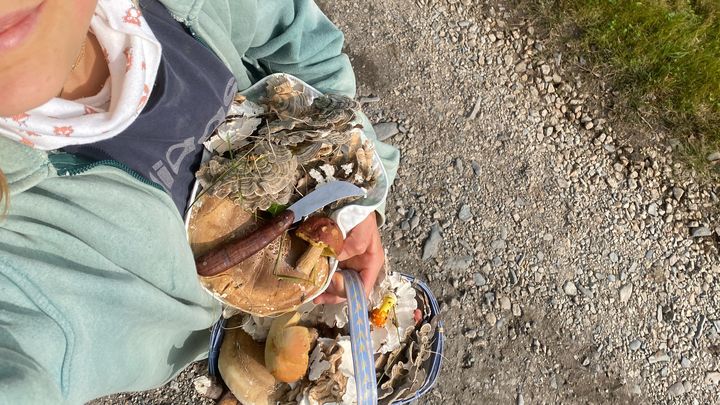
The Wildbiome Project 2025
Donation protected
Hello!
Starting in April, I will be embarking on an exciting three-month journey of eating exclusively wild foods! This adventure is part of a scientific study called the Wildbiome Project, led by forager Mo Wilde, which aims to explore the health benefits of a strictly wild-food diet, particularly its impact on our microbiome.
In the UK, wild and foraged foods are often viewed as ‘famine foods’ or simply weeds. So, it was pretty groundbreaking when Mo and her housemate, Matt Rooney, committed to a year of eating only wild food in 2020/21. During this time, they monitored their gut microbiomes every three months and discovered significant changes in their microbial composition. Mo enjoyed numerous health benefits, including weight loss and a return to a healthy BMI. Meanwhile, Matt, who has Type 2 diabetes, saw his HbA1C—a key diabetes marker—normalise to the pre-diabetic range. Both experienced an increase in gut flora diversity.
Given these promising results, they initiated a follow-up scientific study called “The Wildbiome Project 2023” (WB1) to assess whether a wild-food diet could positively influence health parameters. This study was partially sponsored by Professor Tim Spector OBE at ZOE, a company renowned for conducting the world’s largest nutrition science studies. In this project, 24 volunteers participated: 12 consuming wild food for one month and the other 12 for three months. You can find details about the health changes here:
The findings were incredible, but they only raised further questions about how factors like location, environment, and heritage influence our indigenous microbiomes. To delve deeper, a larger follow-up study, The Wildbiome Project 2025, is in the works, featuring 120 participants and employing a food-tracking app for enhanced data analysis.
During this study, every participant must eat exclusively wild foods and log their meals on the app. While interpretations of what qualifies as "wild" can vary, it essentially includes anything that isn't cultivated—game, fish, shellfish, nuts, berries, mushrooms, and more. Participants will also undergo several finger prick blood tests, stool tests to assess our gut microbiome, and must wear a blood sugar monitor, alongside providing hair and nail samples for analysis.
The University of Bradford is partially funding this study, but each participant must help raise £680 to cover the microbiome testing kit costs.
This is where I need your help! If you can spare any funds, I would be incredibly grateful for your support in raising the necessary amount to participate in this amazing research. Your contribution, no matter how big or small, would make a tremendous difference—even something as simple as sending some glass jars would be appreciated!
To follow my journey and stay updated, check out my (new?) Instagram! ❤️
Thank you so much for your support!
Much love,
Katie (aka Kit) :)))
Organizer
Kit Ondaatje Rolls
Organizer
England